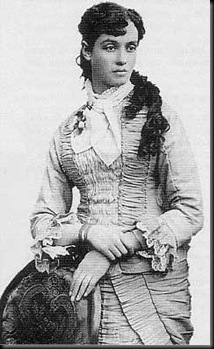Adela Zamudio
The next year, the La Paz Literary Circle named her an honorary member, along with Manuela Gorriti de Belzu.
[1] She used a pseudonym, Soledad (English: Solitude), to reflect her often lonely and misunderstood self, who sought to escape conservative Bolivian society.
In 1899, Zamudio began her teaching career at El Beaterio de San Alberto (where she had attended public school) as an art teacher.
Her biographer Taborga de Villarroel credits this work with contributing the solidarity that helped them in future insurrections and with training the next generation of great Bolivian thinkers.
In 1913, Zamudio was awarded with a gold pen by Bolivia's leading intellectuals in honor of her essays, which sparked national discourse regarding the moral failings of the local Bishop and Catholic Church.
Her biographer and grand-niece Gabriela Taborga de Villarroel credits this work with contributing the solidarity that helped them in future insurrections and with training the next generation of great Bolivian thinkers.
[2] Zamudio also wrote articles for publications and newspapers, promoting democratic reforms and women's rights, including the legalization of divorce.
[1] The first book to bring Zamudio's life and work to the English-speaking world (and the Spanish-speaking world outside of Bolivia) is the 2023 PEN Award for Poetry in Translation finalist Adela Zamudio: Selected Poetry & Prose, translated from the Spanish by Lynette Yetter, bilingual edition (Fuente Fountain Books 2022).
[7] Adela Zamudio: Selected Poetry & Prose earned a Kirkus Starred review and was a BookLife for Publishers Weekly Editor's Pick.
[6][8] On November 2, 1989, the Confederación de Instituciones Femeninas ("CONIF") erected a statue in honor of Zamudio in Chochabamba.
[11] Zamudio is a featured figure on Judy Chicago's installation piece The Dinner Party, being represented as one of the 999 names on the Heritage Floor.


